Whether you're a home cook seeking authentic flavors or a culinary enthusiast exploring global spice traditions, this guide unlocks the science, history, and versatility of chorizo spice mixture—your passport to restaurant-quality dishes at home. This vibrant blend is more than just paprika and garlic; it's a flavor bomb that's traveled across continents and centuries, transforming ordinary meals into extraordinary experiences.
Table of Contents
- What Exactly Is Chorizo Spice Mixture?
- Global Roots: Where Did This Spice Mix Come From?
- The Flavor Powerhouse: Breaking Down the Key Ingredients
- Homemade vs Store-Bought: Which One Wins?
- Pro Tips for Using Chorizo Spice Like a Chef
- Beyond Sausage: Creative Ways to Use This Spice Mix
- Common Mistakes to Avoid When Using Chorizo Spice
- The Science Behind the Spice: Why It Tastes So Good
- Cultural Significance Across the Globe
- Conclusion: Spice Up Your Life with Chorizo Magic
What Exactly Is Chorizo Spice Mixture?
Chorizo spice mixture isn’t one single ingredient—it’s a dynamic ensemble cast of flavors working together to create that signature smoky, garlicky, and slightly sweet heat. Think of it as the Avengers of seasonings, but instead of fighting villains, they fight blandness.
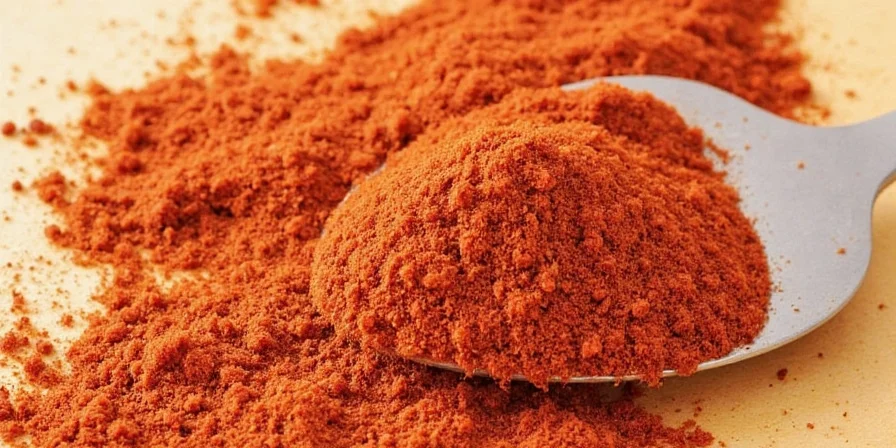
While recipes vary by region (more on that later), most blends include:
- Paprika (smoked is traditional)
- Garlic powder or fresh minced garlic
- Sea salt
- Vinegar or wine (for moisture and tanginess)
- Red pepper flakes or cayenne (for heat)
- Black pepper
- Sugar or sometimes even cinnamon (to balance the heat)
Global Roots: Where Did This Spice Mix Come From?
Let’s rewind to 15th-century Spain. That’s where chorizo first made its debut—though back then, it was more of a peasant food used to preserve pork before refrigeration. The spice mix was developed to mask any off-flavors and add delicious depth to cured meats.
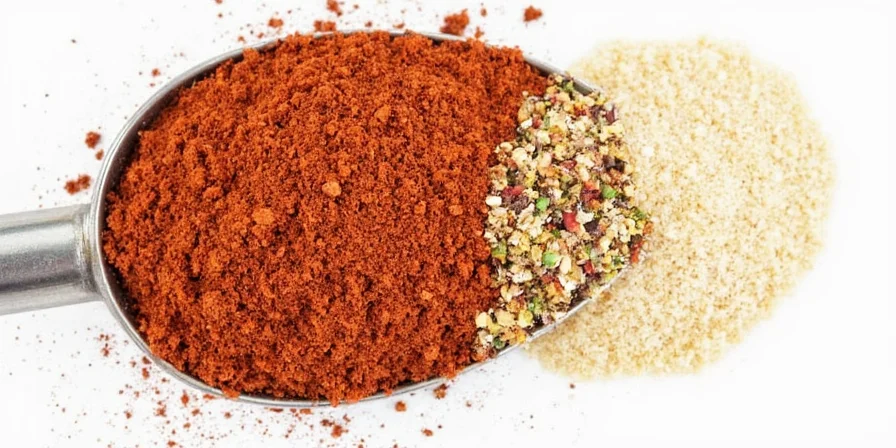
As Spanish explorers sailed the globe, they brought their culinary traditions—and spices—with them. This led to regional variations in Mexico, Portugal, the Philippines, and even the United States. Each version has its own twist, but all owe their soul to the original Spanish blend.
The Flavor Powerhouse: Breaking Down the Key Ingredients
| Ingredient | Role | Flavor Profile | Alternative Options |
|---|---|---|---|
| Smoked Paprika | Base layer of flavor and color | Earthy, smoky, slightly sweet | Regular paprika + liquid smoke |
| Garlic | Bold savory punch | Sharp, aromatic, pungent | Garlic powder if fresh isn't available |
| Salt | Preservative & flavor enhancer | Briny, essential backbone | Sea salt or kosher salt |
| Red Pepper Flakes | Heat provider | Fiery, bright kick | Cayenne or crushed chili peppers |
| Black Pepper | Depth and complexity | Woody, spicy warmth | Whole peppercorns ground fresh |
| Sugar | Balances acidity and heat | Sweet, mellowing agent | Honey or maple syrup (liquid alternatives) |
| Vinegar/Wine | Moisture & tanginess | Acidic, sharp contrast | Lemon juice or cider vinegar |
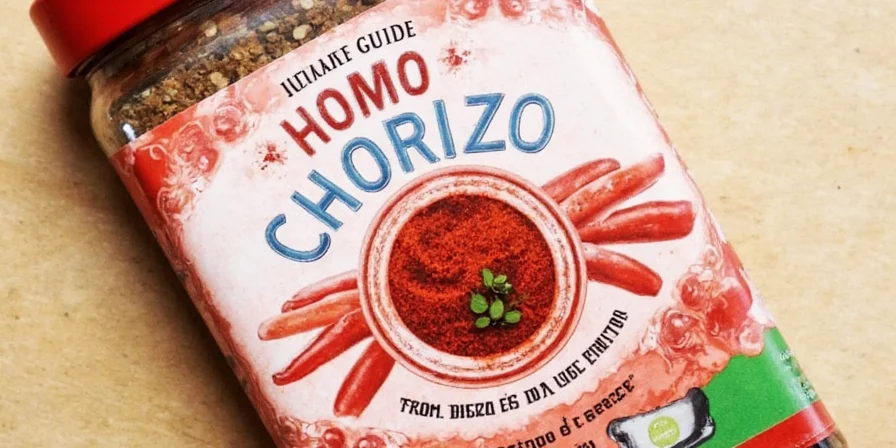
Homemade vs Store-Bought: Which One Wins?
If you’re short on time, store-bought chorizo seasoning can be a lifesaver. But if you want to impress your taste buds (and maybe your dinner guests), homemade is the way to go. Let’s compare:
| Aspect | Homemade | Store-Bought |
|---|---|---|
| Taste Control | You decide the heat level, sweetness, and saltiness | Fixed flavor profile |
| Freshness | Fresher spices = more vibrant flavor | May lose potency over time |
| Cost | $5–$8 for a large batch | $3–$5 per small packet |
| Convenience | Takes 10 minutes to mix | Instant gratification |
| Customization | Swap, adjust, experiment! | Limited options |
Pro Tips for Using Chorizo Spice Like a Chef
- Toasting the spices enhances flavor. Just give them a quick dry toast in a pan before mixing.
- Use the spice mix within 3–6 months for best flavor (store in an airtight container away from light).
- If using fresh garlic, let it rest for 10 minutes after chopping to enhance flavor development.
- Add a splash of olive oil when mixing with meat to help distribute the flavor evenly.
- Want extra umami? Add a pinch of powdered mushrooms or soy sauce powder.

Beyond Sausage: Creative Ways to Use This Spice Mix
Chorizo spice isn’t just for making sausage anymore! Here are some fun ways to use it around your kitchen:
- Potato Wedges: Toss fries with chorizo spice before baking.
- Popcorn: A sprinkle adds a smoky, spicy twist to movie night snacks.
- Rice or Quinoa: Stir into grains for instant flavor boost.
- Grilled Veggies: Brush on zucchini, eggplant, or corn before grilling.
- Marinades: Mix with oil, lime, and honey for a killer meat rub.
- Chili or Stews: Swap regular chili powder for chorizo spice for bold new dimension.
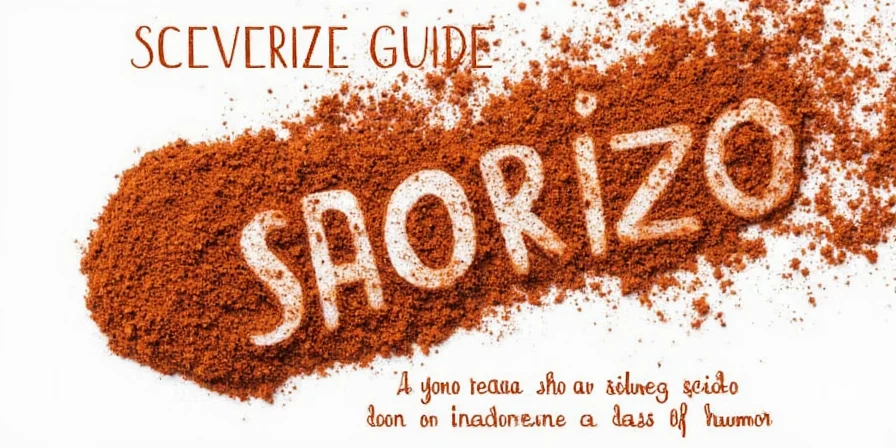
Common Mistakes to Avoid When Using Chorizo Spice
Even seasoned cooks make these blunders. Don’t let these slip-ups sabotage your dish:
- Overloading the mix – Start with a little and build up. You can always add more!
- Mixing with wet ingredients too early – Wait until ready to cook to prevent clumping.
- Not balancing the salt – If using pre-salted meats, reduce added salt accordingly.
- Forgetting about acid – Vinegar or citrus helps round out the richness.
- Ignoring freshness – Spices fade. Smell them before using—if they smell stale, toss ’em!
The Science Behind the Spice: Why It Tastes So Good
So what makes chorizo spice so addictive? Let’s break it down scientifically:
- Umami Boost: Garlic and paprika activate glutamate receptors—the same ones responsible for that savory, craveable flavor.
- Smoke Signals: Smoked paprika contains compounds like guaiacol that mimic the effects of real smoke—no grill required!
- Trigeminal Kick: Capsaicin from the chilies activates pain receptors, giving you that warm, almost euphoric feeling (similar to a runner’s high!).
- Sugar-Salt Balance: The touch of sugar softens the salty, bitter notes, making everything more harmonious.
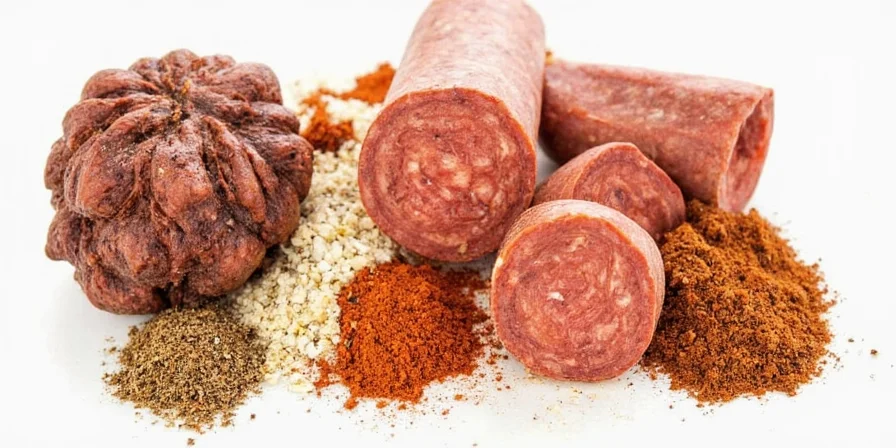
Cultural Significance Across the Globe
From street tacos in Mexico City to tapas bars in Barcelona, the chorizo spice mixture holds cultural weight far beyond the spice rack. In many places, it represents family tradition, celebration, and identity:
- Spain: Chorizo is often gifted during holidays and weddings.
- Mexico: Used in dishes like tacos de chorizo and queso fundido, especially during festivals.
- Philippines: Chorizo de Bilbao, a legacy of Spanish colonization, is a beloved local delicacy.
- USA: Popularized in Tex-Mex cuisine, chorizo is now a staple in trendy brunch spots and backyard barbecues alike.
Beyond regional variations, chorizo spice mix embodies a powerful narrative of cultural adaptation. When Spanish colonizers introduced chorizo to the Philippines, locals transformed it using indigenous ingredients, creating 'chorizo de Bilbao'—a testament to culinary resilience. Similarly, Mexican versions embraced native chilies, turning a preservation technique into a symbol of national identity. Each adaptation reflects how food transcends borders, evolving through community and necessity.
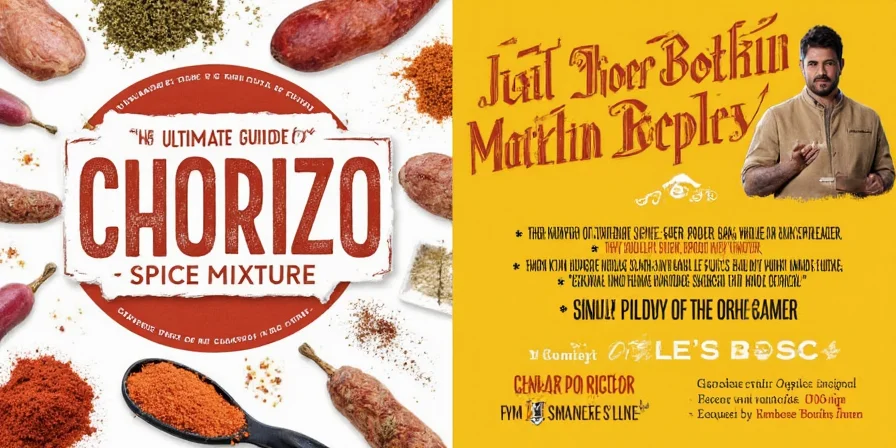
Conclusion: Spice Up Your Life with Chorizo Magic
The chorizo spice mixture is more than just a seasoning—it’s a passport to flavor, history, and culture. Whether you’re making it at home or buying it off the shelf, don’t underestimate the power of a well-balanced blend. From enhancing everyday meals to impressing guests with global flair, this spice mix deserves a spot in every kitchen.
Frequently Asked Questions
What is the difference between Spanish and Mexican chorizo spice?
Can I make chorizo spice without pork?
How long does homemade chorizo spice last?
Why is vinegar included in some chorizo spice recipes?
Can chorizo spice be used in sweet dishes?
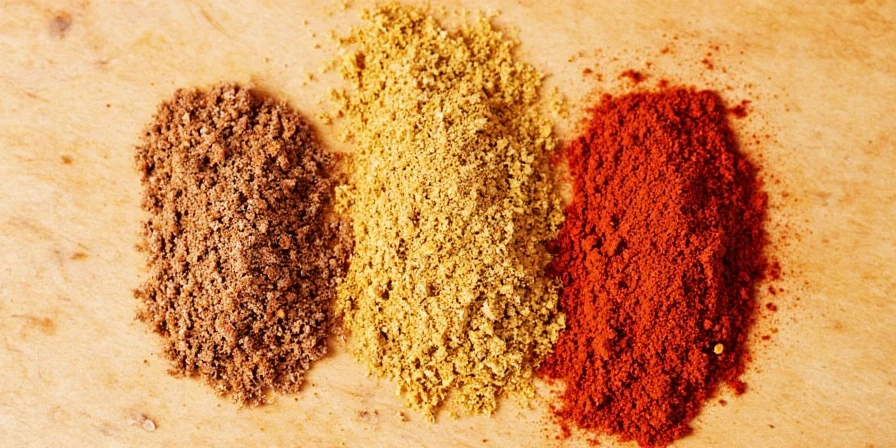

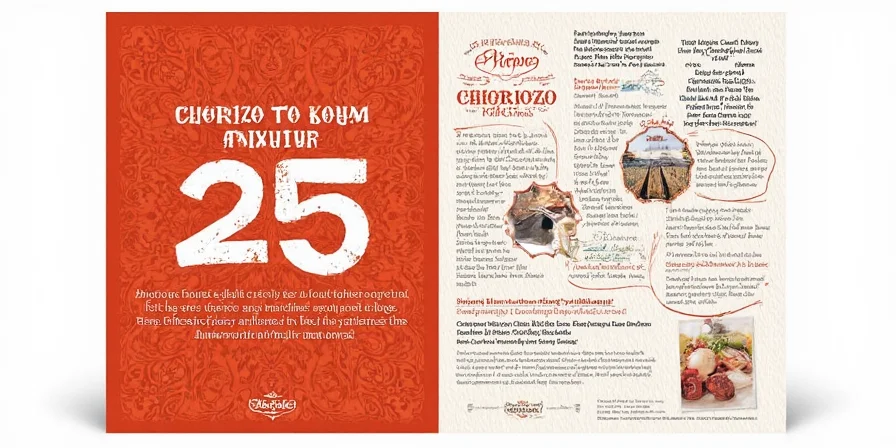









 浙公网安备
33010002000092号
浙公网安备
33010002000092号 浙B2-20120091-4
浙B2-20120091-4